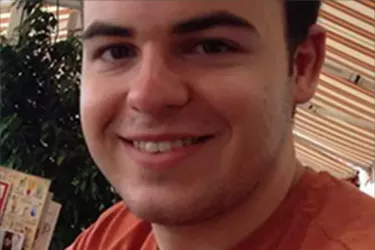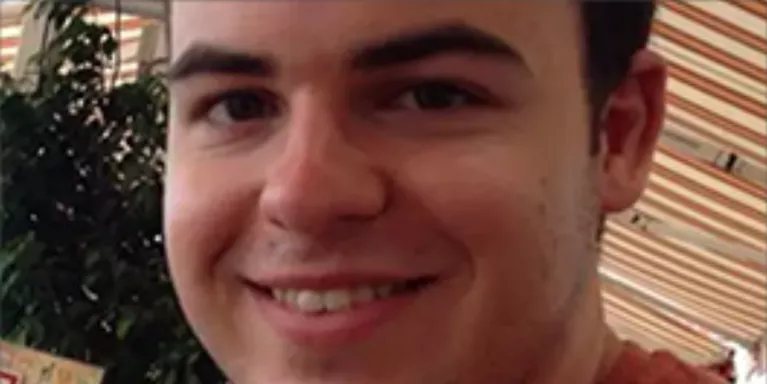Cassie's story
Cassie shares her experience of working as a crime scene investigator while dealing with PTSD. She explains why she wants to smash the stigma around mental health problems.
I have worked for Merseyside Police for 12 years – 10 years as a crime scene investigator and 2 years as an enquiry officer on the front desk.
I always wanted to join the police, partly because I'm so nosy! But mostly because I love helping people. People come to us because they are in difficulty and I find great rewards in being the person that provides support and help.
At times it can be stressful dealing with distressed people so much, and it can often feel like you're carrying the weight of everyone else's problems. There have been lots of challenges lately that have made it much more difficult to carry out our day to day role. It often feels like we are letting people down when they need us the most.
I was diagnosed with PTSD following an illness. I suffered from viral encephalitis, which caused my brain to swell, and I suffered from psychotic episodes. The episodes centred around my job and were so real that my mind was convinced that they had happened to me. In my mind, I was kidnapped because of my job, I was shot and also raped. In my mind, I was fighting for my life that day.
It's important to be kind to yourself and to remember that life can return to normal.
When I was released from hospital, I began to suffer from vivid flashbacks while awake, and at night I suffered from nightmares so real that I would wake up sobbing. I was terrified that I was losing my mind. I was too scared to be left alone in case I suffered further psychosis.
I was relieved to be diagnosed with PTSD, but it seemed like getting my confidence and my life back on track were a million miles away. Having counselling literally saved me. I could offload all my thoughts and it helped me feel that I could take control of things again. I returned to work almost five months later, keen to get on with my life.
Being a crime scene investigator was tricky while battling PTSD and there were a lot of setbacks on my long road to recovery. I was dealing with major crimes while trying to put the pieces of myself back together.
Before this happened to me, I thought that I was invincible, that I was too strong to have a mental health problem. I work for the police after all; I'm the one that helps everyone else. Maybe that's why I found it so difficult being on the other side of the coin, if you like.
Luckily, I have loving and supportive family, friends and colleagues who held my hand throughout my ordeal. I also couldn't have done it without the professional help that I received from counsellors and mental health professionals. I still suffer from anxiety, and at times it gets overwhelming, but I am proud of how far I have come in getting my life back on track.
My advice for anyone suffering from PTSD would be to keep talking and to seek professional help as soon as possible. It's important to be kind to yourself and to remember that life can return to normal, just don't put pressure on yourself or set yourself deadlines to recover.
I am definitely seeing a subtle change in attitudes and I am proud to think that I may have helped with that.
If you know someone suffering, be patient and listen; just knowing that they have your support is a massive comfort. Try to avoid telling people to "pull themselves together". Mental health symptoms are just as real as physical symptoms. Encourage the person to get out of the house if possible and remind them of how brave they are. I found that fresh air helped relieve my anxiety and helped me to refocus.
I hope that sharing my story will encourage people to speak up if they are suffering. I hope that people will see that anyone can be affected by a mental health problem, through no fault of their own.
Life can change in the blink of an eye, so please don't judge people who are fighting a battle in their own head. Instead let's support them and appreciate how brave they are.
Mental health symptoms are just as real as physical symptoms.
I am proud to be a Blue Light Champion and I am hopeful that we can smash the stigma surrounding mental health and support those who need help.
I found that by sharing my story with my colleagues and being open and honest about my struggles, colleagues are also finding their voices and seeking help. I have been on lots of really useful training courses and I am hopeful that I can use these new found skills to help drive change in the way that staff battling mental health at work are treated.
I am definitely seeing a subtle change in attitudes and I am proud to think that I may have helped with that.


Information and support
When you’re living with a mental health problem, or supporting someone who is, having access to the right information - about a condition, treatment options, or practical issues - is vital. Visit our information pages to find out more.
Share your story with others
Blogs and stories can show that people with mental health problems are cared about, understood and listened to. We can use it to challenge the status quo and change attitudes.

















